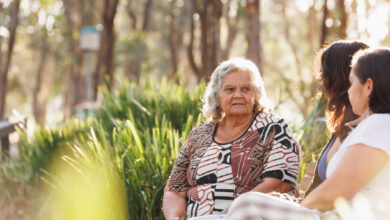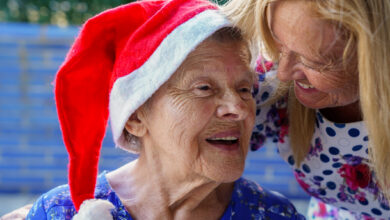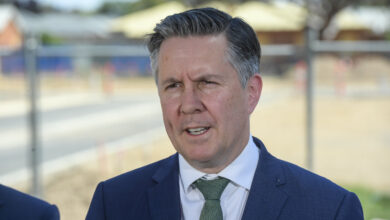$1.4 billion boost to strengthen aged care and hospitals against Covid

Healthcare minister Mark Butler announced last week that the government will fork out an additional $1.4 billion over the upcoming three months to prevent Covid outbreaks in hospitals and aged care homes.
The Covid package that was due to expire by the end of this week will now provide additional Covid support until December 31st, with the bulk of the funds ($840 million) earmarked for aged care.
"Since the peak of that wave in late July, case numbers are down by about 85 per cent, hospitalisations are down by about 70 per cent," Butler said.
"The number of aged care facilities who are experiencing outbreaks right now is down by more than three quarters, and the mortality rate is down by more than a half.
"But there is still tragic loss of life being felt by about 45 families on average every single day because of Covid. And there is still very real pressure on our health and our hospital system because of ongoing infections."
The chief of health policy at Catholic Health Australia, Caitlin O’Dea, has welcomed the financial aid as close to 7,000 Covid cases a day continue to put a strain on hospitals across Australia.
“Our hospitals are still well and truly in the thick of Covid and are reeling from the huge burden of costs of protecting patients and staff. We welcome the extra assistance,” she said.
O’Dea was particularly pleased to see an extra $5 million for antivirals to be prescribed through telehealth.
“Telehealth came into its own during the pandemic and we should continue to develop our telehealth capacity and utilise it where it makes sense,” she said.
The package also includes over $142 million set aside for Medicare Benefits Schedule (MBS) items and rebates from October 1st to improve Covid testing.
Another $48 million will see the expansion of 100 GP-led Respiratory Clinics and $5.5 million on rebates for face-to-face GP visits for patients with Covid.
The package plans to dedicate over $235 million to ensure frontline healthcare workers, aged care homes and primary care have enough rapid antigen tests and protective equipment.
RACGP President, Adjunct Professor Karen Price, said these measures will make a real difference and that we need all the support we can get.
“GPs, practice managers, nurses, receptionists, and administrative workers are doing a tremendous job after a gruelling two-and-a-half years,” she said.
“I stress that the pandemic is not over, and we can’t be complacent. It’s vital to keep fighting this virus and do all we can to keep vulnerable members of our community, including older people and the immunocompromised, as safe as possible.
“I encourage everyone to help limit the spread of this virus and ease pressure on our entire health system. We all have a role to play, it’s as simple as that.”
Email: [email protected]





